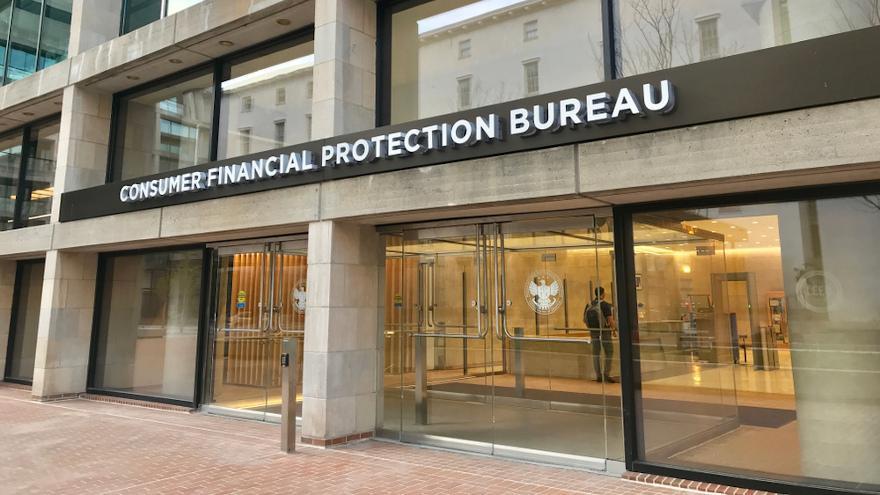CFPB hands OneMain $20M penalty involving personal loan business

By subscribing, you agree to receive communications from Auto Remarketing and our partners in accordance with our Privacy Policy. We may share your information with select partners and sponsors who may contact you about their products and services. You may unsubscribe at any time.
OneMain Financial is being penalized by the Consumer Financial Protection Bureau (CFPB) for its infractions the regulator found associated with its personal loan business.
The CFPB announced on Wednesday that OneMain — which also has a notable subprime auto finance operation — has been ordered to pay $20 million in redress and penalties for failing to refund interest charged to 25,000 customers who cancelled purchases within a purported “full refund period,” and for deceiving borrowers about needing to purchase add-on products to receive a loan.
According to a news release, the bureau said OneMain will pay $10 million in refunds to consumers it harmed and an additional $10 million penalty to the CFPB’s victims relief fund.
“OneMain pressured its employees to load up its loans with extra charges through false promises of easy cancellation with full refunds,” CFPB director Rohit Chopra said. “We are ordering OneMain to refund borrowers it cheated and to clean up its business practices.”
OneMain is a nonbank personal loan installment lender headquartered in Evansville, Ind., and is a subsidiary of OneMain Holdings. OneMain is one of the largest non-depository personal installment lenders in the United States. It has a nationwide network with more than 1,400 branches across 44 states.
The CFPB indicated that OneMain:
Subscribe to Auto Remarketing to stay informed and stay ahead.
By subscribing, you agree to receive communications from Auto Remarketing and our partners in accordance with our Privacy Policy. We may share your information with select partners and sponsors who may contact you about their products and services. You may unsubscribe at any time.
—“Tricked” borrowers into signing up for optional products: The bureau said OneMain customers were led to believe that they could not receive a loan without signing up for an add-on product. Officials said some employees added the products to paperwork without verbally informing the consumer that the products were included or optional, a practice referred to internally as “pre-packing.”
“If the consumer identified the products and asked for their removal, employees were expected to make it seem difficult to remove the products. In other cases, employees obscured written disclosures from consumers’ view, or verbally contradicted them,” the bureau said.
—Kept $10 million in interest charges despite its “full-refund” policy: OneMain told borrowers they would receive a “full refund” on add-on purchases if they cancelled within a certain period (generally 30 days). However, the CFPB said OneMain “unfairly” failed to refund interest charges for about 25,000 borrowers who signed up for add-ons such as roadside assistance benefits, identity theft protection, or entertainment discounts.
“Because of how OneMain precomputed interest on some loans, customers had already been charged significant amounts of interest that the company did not refund. Over the past four years, OneMain kept approximately $10 million in interest charges attributable to add-ons cancelled within its purported “full refund period,” officials said.
Under the Consumer Financial Protection Act (CFPA), the CFPB has the authority to take enforcement action against institutions violating consumer financial laws.
The CFPB found that OneMain’s practices violated the CFPA’s prohibition on unfair practices by charging and then failing to refund the full premium or fee and interest that accrued on add-on products consumers did not agree to purchase.
Officials said OneMain also charged and failed to refund interest that accrued on add-on product fees during an advertised full refund period.
Furthermore, the CFPB determined OneMain was illegally interfering with consumers’ ability to understand that certain products were optional, and that OneMain charged non-refundable interest during the purported full-refund period.
The order requires OneMain to:
—Adjust cancellation policies: The order requires OneMain to stop its unlawful activities, adjust its policies to make cancellation of add-on products easier, double the period in which a consumer can cancel an unused add-on product without cost from 30 to 60 days, and include interest in refunds after add-on product cancellations at any time.
—Provide redress to consumers: The order requires OneMain to pay $10 million in refunds to consumers for improper charges.
—Pay $10 million in penalties: OneMain is required to pay a $10 million penalty to the CFPB, which will be deposited into the CFPB’s victims relief fund.
The entire order can be found online via this website.


